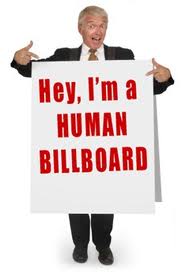On any given day, there’s about a 60% chance you’ll find me
at Starbucks working. It’s a great, free
working space complete with vibrant energy, wake-up aromas, and, especially
this time of year, snowman sugar cookies.
Ah, and there’s usually a fascinating collection of people hanging out/
working. This past Friday night, I was
writing some Holiday/ Thank You cards to our customer-partners and other
prospects when I was complimented on our cards by a fellow Starbucker (yes,
handwriting them – crazy in this day of keyboard and touchscreen typing, I
know).
My new friend is an MBA student at Georgia State, and was a
previous Psychology major in undergrad.
She was worried a bit about having a non-business background and
post-graduate opportunities. This was a
great conversation for me because I’ve long appreciated how psychology
intertwines with business. It’s not
readily apparent, but it really is. Talk
to any good salesperson, and he’ll know exactly how to talk to you and
potentially what makes you tick and tock.
Some quick thoughts on how psychology is engrained in
entrepreneurship and business overall…
- Know Your Strengths and Weakness. Assessments like the Myers-Briggs, DISC Profile, Berkman, etc. can be simple ways of finding out more about yourself. These assessments may help you realize more about yourself to capitalize on your strengths and limit your weaknesses while building your career around your personal interests. I’d recommend, however, that as much as you limit your weaknesses, to also work on those weakness or what stresses you can help you be a stronger performer – “be comfortable being uncomfortable”.
- Building a Balanced Team. As a continuation of the Strengths and Weaknesses above, building a team for a startup or small business with balanced strengths and weaknesses allow for a stronger company in addition to its product/ service offering. For Body Boss, we do actually have differing personalities, and it challenges each of us to think more about why one another feels the way we do when we consider marketing campaigns, licensing and selling opportunities, or even just philosophies that shape our startup’s culture.

- Put Yourself in Your Customers’ Shoes. Marketing has psychology all over it. You have your target audience in mind. Do you know what language they speak? What style of communication they perceive? How about what really resonates with them so that you can grab their attention right away? Marketing is all about diving into the psyche of your customers and compelling them to engage with you.
- Sales is All About Your Customer. Many people will tell you that an effective sales strategy is to have the customer speak. I think this can be somewhat true in terms of getting engagement. However, why I like this rule of thumb is so that it gives me a break and a chance to listen to the customer and analyze him/ her. Customers are all different, and chances are, your product/ service has many value propositions. By sitting back and listening to your prospects, you can hone in on what matters to them and cater your value message accordingly.
- Threshold of Pain. My new friend asked me what signs a successful entrepreneur exhibits/ has. I have many thoughts to this, not necessarily from my own perspective, but witnessing others. One of the standout factors? Mental and emotional fortitude. Beyond the physical demands of being an entrepreneur (like lack of sleep), it’s the mental and emotional toll of going through the roller coaster ride that is entrepreneurship including feeling INCREDIBLE when new customers finding out about you to incredibly FRUSTRATED due to low user engagement, then back to a HIGH after a great exhibition at a conference, then dipping back down LOW from unsuccessful trial conversions. Because much of entrepreneurship is about passions and the creation of your own product, it takes a toll both mentally and emotionally. I recommend you watch Angela Lee Duckworth’s TED talk about this in “The Key to Success? Grit”.


